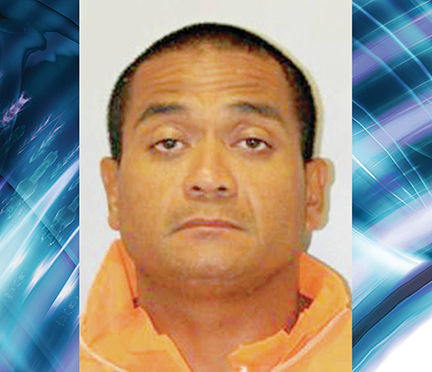LIHUE — A man accused of robbing First Hawaiian Bank in May was sentenced Wednesday to 10 years in prison. “I don’t know what to say,” said Norman Akana. “I apologize to the court and to the community.” The Hanapepe
LIHUE — A man accused of robbing First Hawaiian Bank in May was sentenced Wednesday to 10 years in prison.
“I don’t know what to say,” said Norman Akana. “I apologize to the court and to the community.”
The Hanapepe man appeared before Judge Kathleen Watanabe on two separate cases.
In one, he is charged with one count of arson in which he is accused of setting fire to a victim’s property, causing more than $20,000 damage. In the other, he is charged with robbery in the second degree after police say he approached a teller and demanded cash.
Akana, 42, is accused of entering the bank on May 4 and handing a teller a white paper bag and a note reading “have money, please fill.”
He fled on foot with an undisclosed amount of cash. He was arrested later that night at a home in Niumalu and remains at the Kauai Community Correctional Center on $150,000 bail.
“He made a huge mistake, and he can’t take it back,” said Melinda Mendes, his attorney. “He accepts responsibility, and recognizes he will be spending some serious time in prison.”
Akana also wanted to express his apology to the bank teller, Mendes said.
On Wednesday, Akana was also in court for a motion to revoke or modify his probation on the arson case after his probation officer said he violated the terms.
In May, he didn’t report to a cognitive group session, submit to a random drug test, admitted to using methamphetamine and alcohol and couldn’t be reached by cellphone, Watanabe said.
But, because he has pleaded no contest, as part of a plea agreement his probation was revoked, and he will serve 10 years, to run concurrently, with the robbery case.
“He’s a good guy with a humble heart, who has a drug problem,” said Stephanie Char, who represented Akana in the arson case.
Before handing down the sentence, Watanabe said Akana knows he has a problem with drug addiction.
“You’ve acknowledged that you regret your actions,” she said. “The root is a very bad drug problem. You know what needs to be done.”


